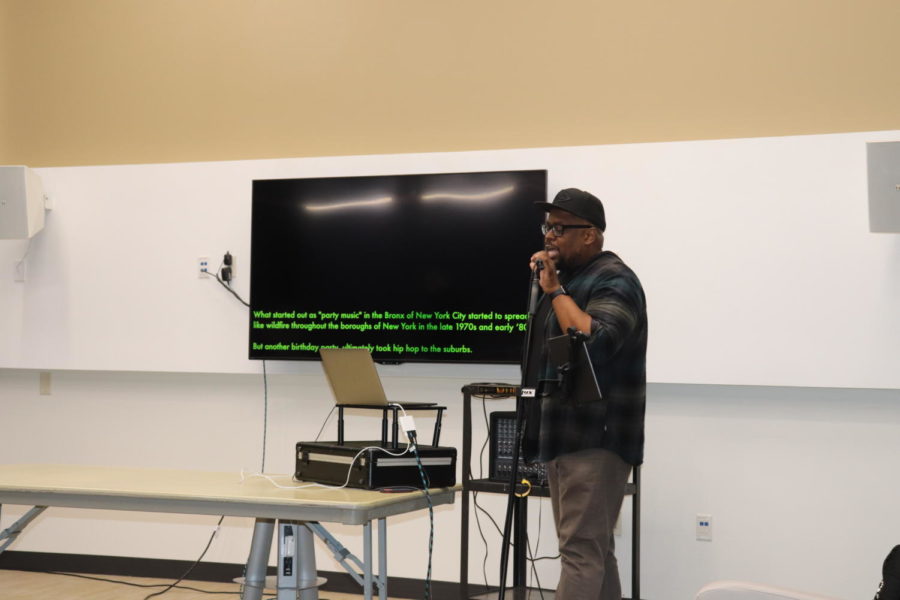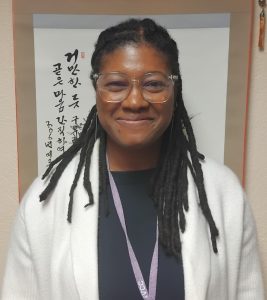History of Hip Hop
College event celebrates Black History Month
David John Lee, known as DJ Lee, who was born and raised in Kansas City, Missouri, talks to IVCC students in the Student Life Area on Feb. 16 about the history of hip hop. He was in a band called “ScratchTrack” and was known for his beatboxing.
March 16, 2023
The sounds, beats and history of hip-hop reverberated through Student Life Space on Feb. 16 as rapper DJ Lee shared the origins of the music style as a cultural movement.
“I love being able to connect where things come from,”Lee said as he explained the importance of teaching students about hip-hop’s influence on the modern day.
Lee’s presentation on the “Evolution of Hip-Hop” was one of several scheduled events to commemorate Black History Month during February. The events are planned by the college’s Diversity, Equity, and Inclusion committee to raise awareness.
“I like how it brings fun to campus,” student Riker Fesperman said of the event, which featured games like, “How Hip-Hop Are You?”
As a cultural movement, Lee explained that “Hip” means “in the know” and “Hop” means movement. It originated in the ‘70s with a combination of disco, funk and pop. It is used in songs like “Dancing Queen” by ABBA and “Le Freak” by Chic.
Lee gave some insight on hip-hop’s credibility, renown, and influential creators.
- Hip-hop culture was established by organizations such as Def Jam Records.
- The music style is a social commentary, as seen in Slick Rick’s rap “Children’s Story,” where he talks about how crime can affect the youth of New York
- It has also been used to make civil rights and political statements; for example, the N.W.A raps about police brutality in their songs
- Some of the women who built the foundation of hip-hop include M.C. Sha Rock, Queen Latifah, MC Lyte, Salt N Pepa, and Monie Love
Lee also talked about the five elements of Hip-Hop. One is the DJ, which stands for Disc Jockey. Another is the MC, which is the Master of Ceremonies. Break-dancers, who dance during the breaks, is another element, along with beatboxers and graffiti.
For six years, hip-hop was just party music. The first ever recorded hip-hop song was “Rappers Delight” by Sugar Hill Gang. Rudy Ray Moore was known as the godfather of hip-hop, while the so-called mother of hiphop was Sylvia Robertson, according to Lee.
There were no recordings of hip-hop before the 1970s, he said. Hip-hop started as party music in the Bronx in the late ‘70s before spreading throughout the state of New York until a birthday party brought hip-hop to the suburbs.




